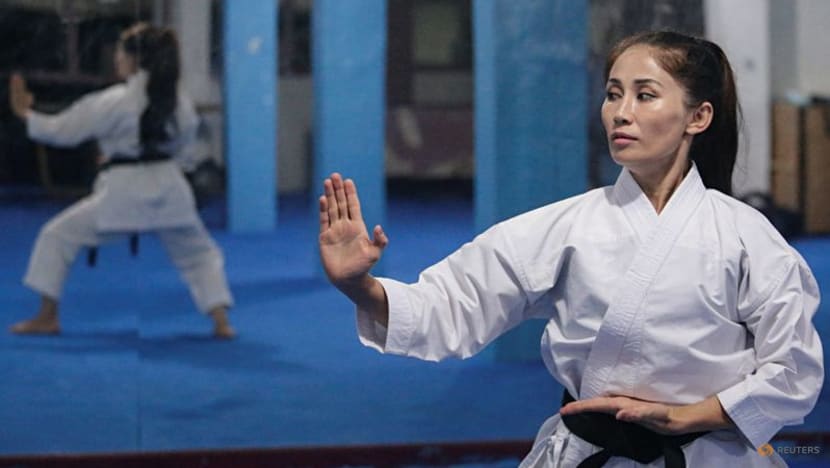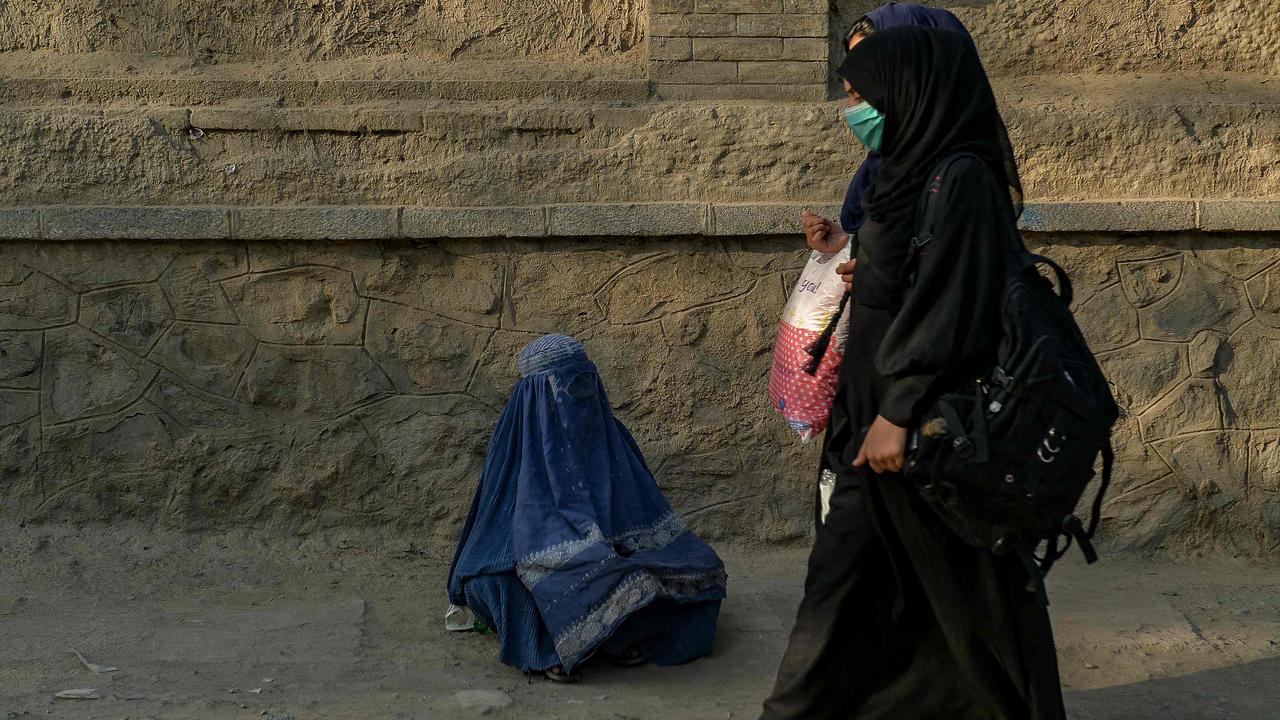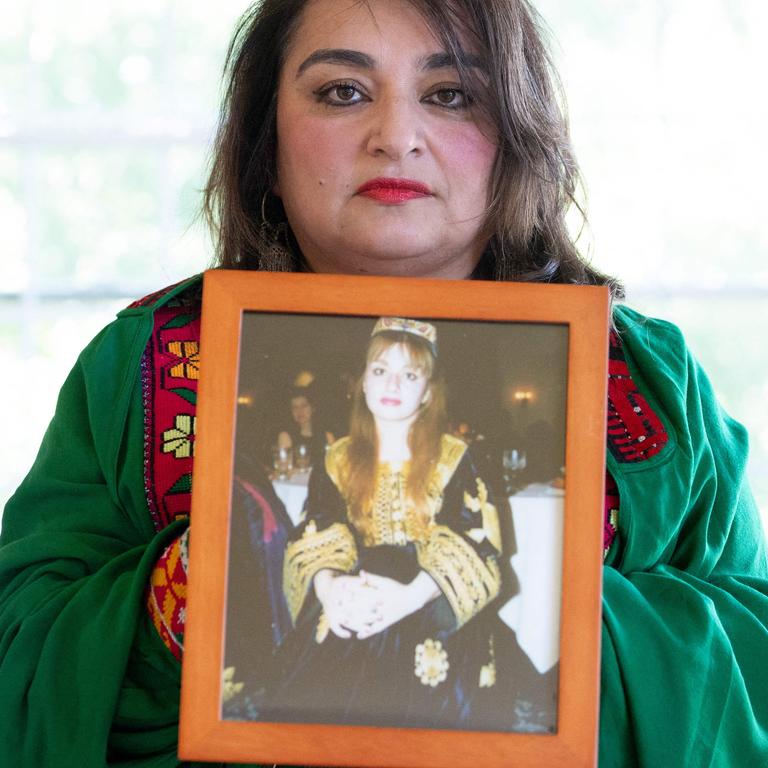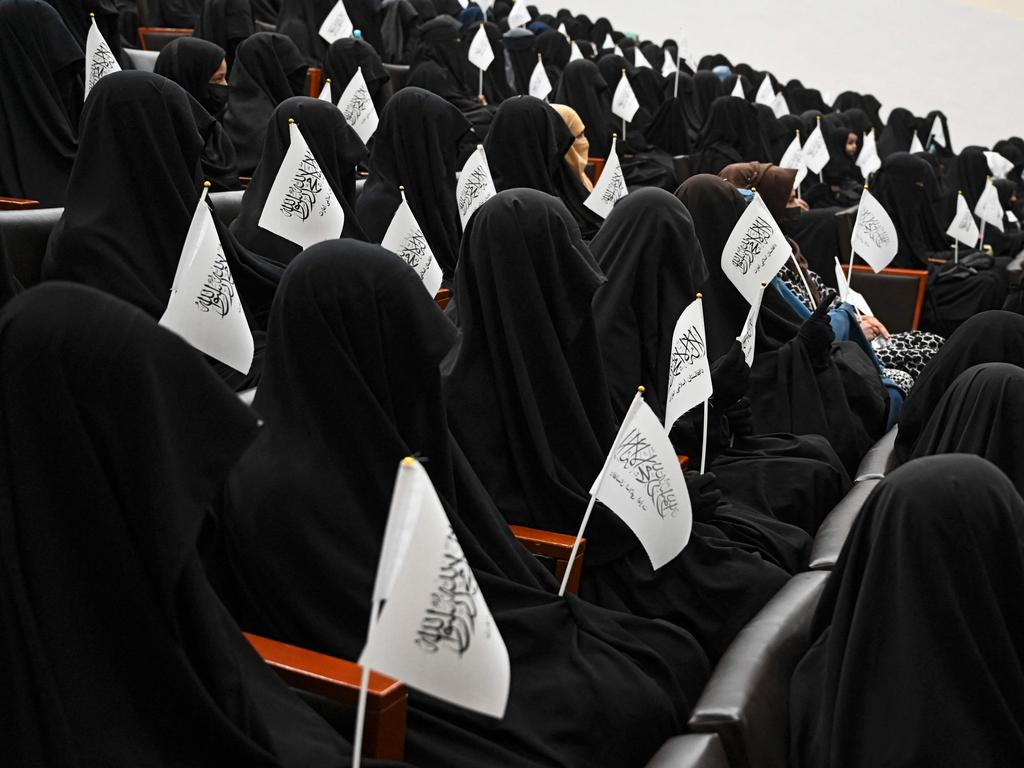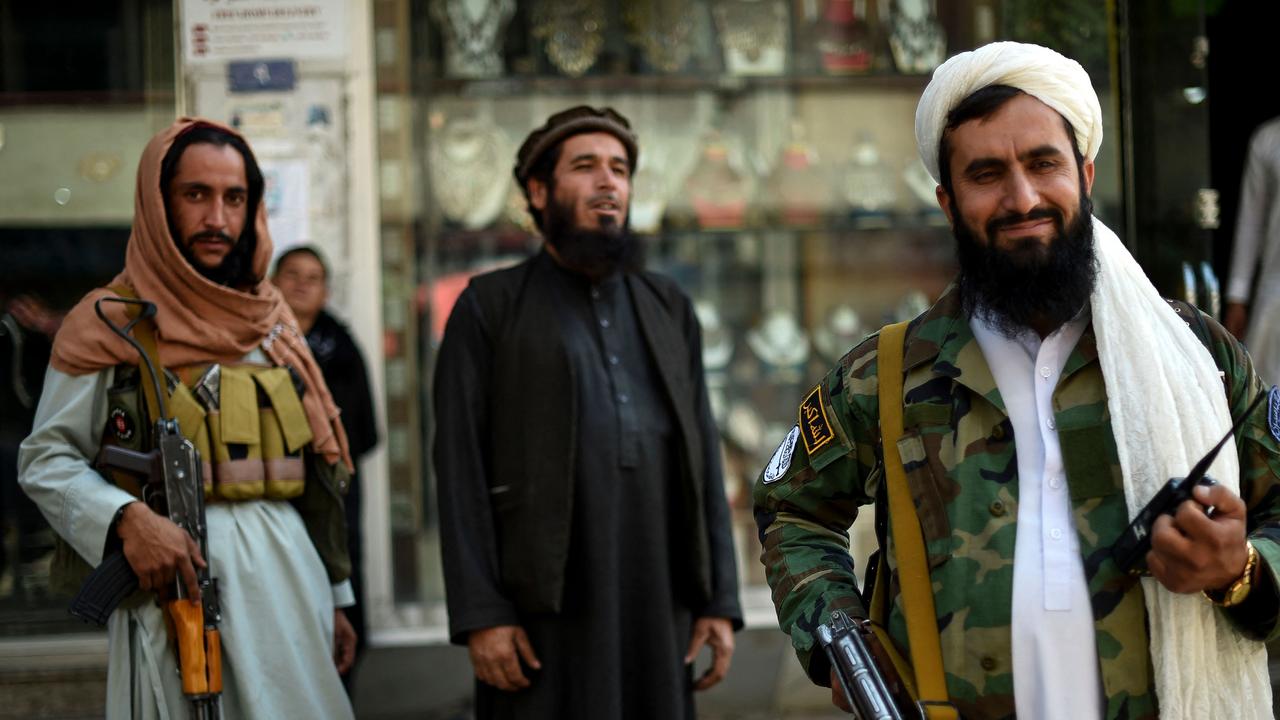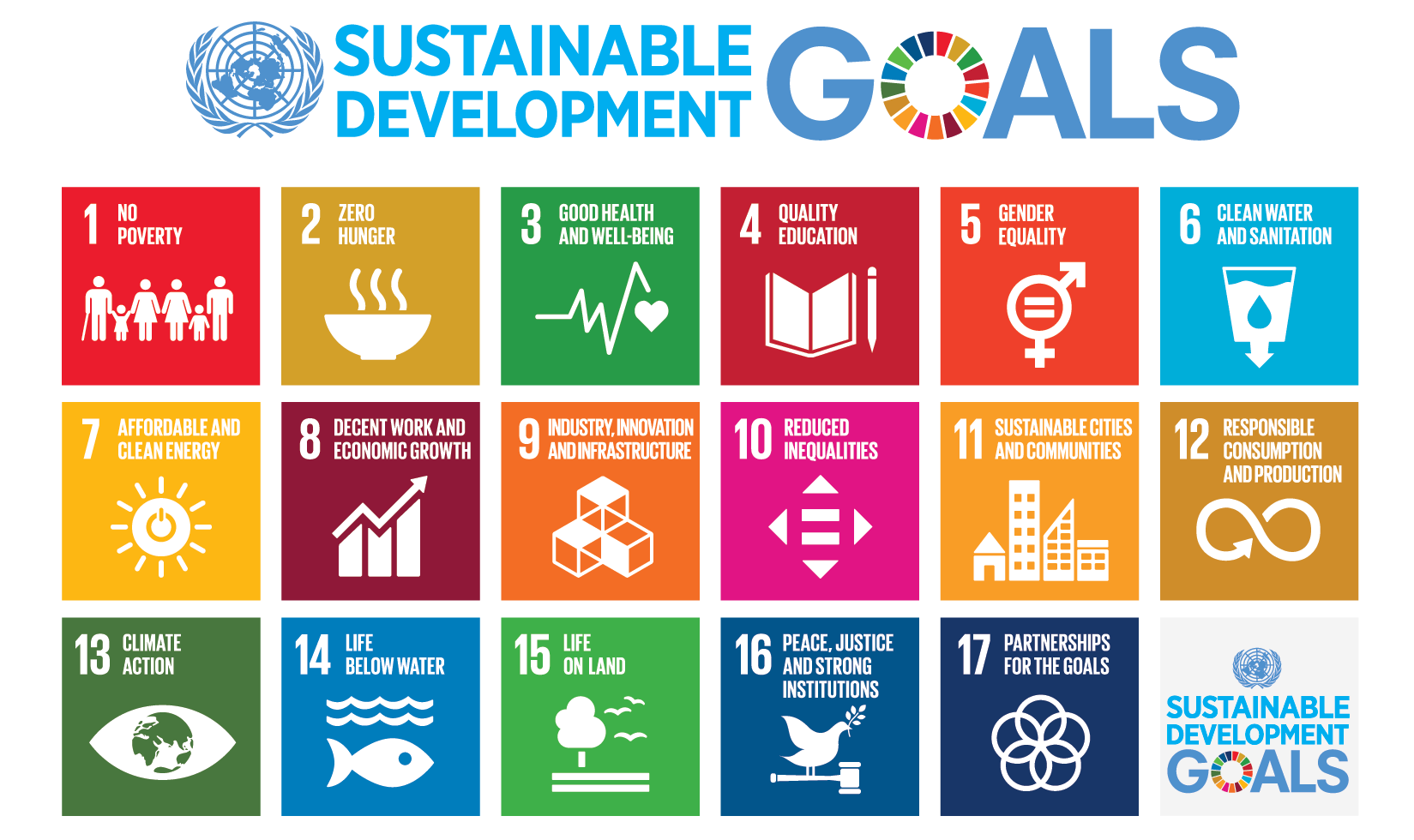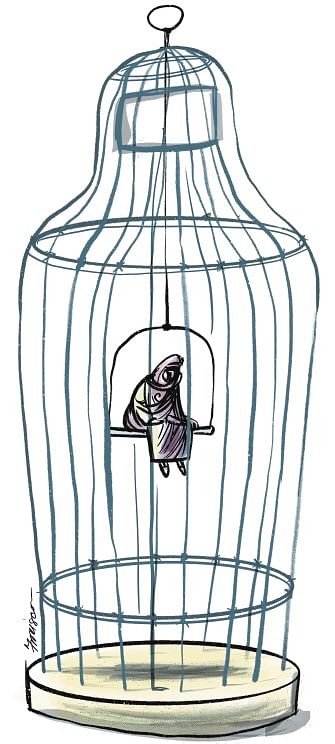Afghan women need you, AWARE. Please fight for Afghan women's rights.
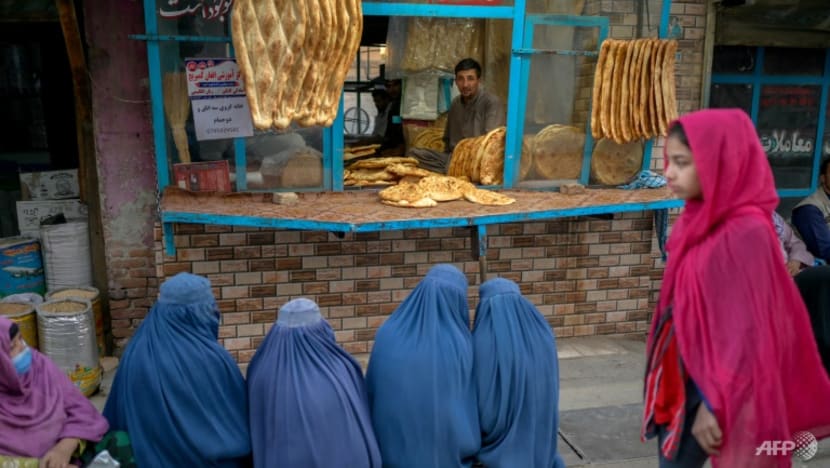
Girls were excluded from returning to secondary school in Afghanistan after the Taliban ordered only boys and male teachers back to the classroom. (Photo: AFP)
18 Sep 2021
KABUL: Girls were excluded from returning to secondary school in Afghanistan on Saturday (Sep 18), after the country's new Taliban rulers ordered only boys and male teachers back to the classroom.
The hardline Islamist group ousted the US-backed government last month, promising a softer brand of rule than their repressive reign in the 1990s, when women were mostly banned from education and work.
But the diktat from the education ministry was the latest move from the new government to threaten women's rights.
"All male teachers and students should attend their educational institutions," a statement said ahead of classes resuming Saturday.
The statement, issued late Friday, made no mention of women teachers or girl pupils.
Secondary schools, with students typically between the ages of 13 and 18, are often segregated by sex in Afghanistan. During the COVID-19 pandemic, they have faced repeated closures and have been shut since the Taliban seized power.
Since a US-led invasion ousted the Taliban in 2001, significant progress has been made in girls' education, with the number of schools tripling and female literacy nearly doubling to 30 per cent - however, the change was largely limited to the cities.
The United Nations said it was "deeply worried" for the future of girls' schooling in Afghanistan.
"It is critical that all girls, including older girls, are able to resume their education without any further delays. For that, we need female teachers to resume teaching," the UN's children's agency UNICEF said.
Primary schools have already reopened, with boys and girls mostly attending separate classes and some women teachers returning to work.
The new regime has also permitted women to go to private universities, though with tough restrictions on their clothes and movement.
In Kabul on Friday, workers were seen raising a sign for the Ministry for the Promotion of Virtue and Prevention of Vice at the old Women's Affairs building in the capital.
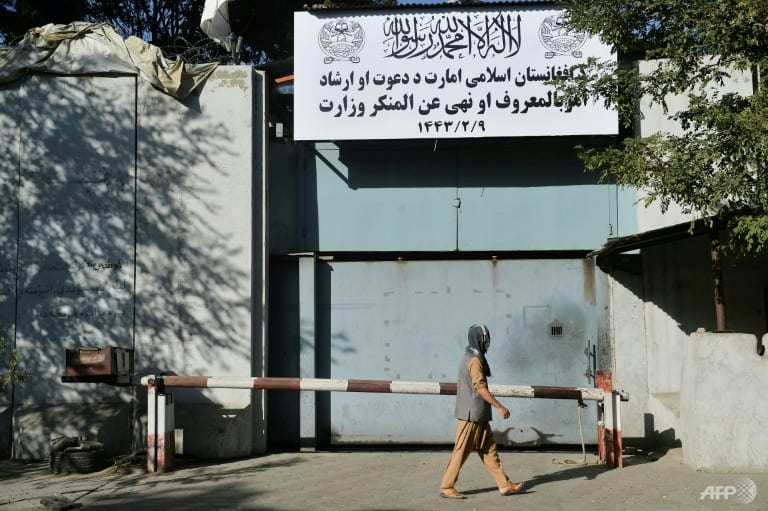 Workers put up a sign for the notorious Ministry for the Promotion of Virtue and Prevention of Vice at the old Women's Affairs building in Kabul. (Photo: AFP)
Workers put up a sign for the notorious Ministry for the Promotion of Virtue and Prevention of Vice at the old Women's Affairs building in Kabul. (Photo: AFP)
Videos posted to social media showed women workers from the ministry protesting outside after losing their jobs.
No official from the Taliban responded to requests for comment.
Although still marginalised, Afghan women have fought for and gained basic rights in the past 20 years, becoming lawmakers, judges, pilots and police officers.
Hundreds of thousands have entered the workforce - a necessity in some cases as many women were widowed or now support invalid husbands as a result of decades of conflict.
The Taliban have shown little inclination to honour those rights - no women have been included in the government and many have been stopped from returning to work.
The strike during the final days of the US pullout was meant to target a suspected Islamic State operation that US intelligence believed with "reasonable certainty" was planning to attack Kabul airport, said US Central Command commander General Kenneth McKenzie.
"The strike was a tragic mistake," McKenzie told reporters after an investigation.
McKenzie said the government was looking into how payments for damages could be made to the families of those killed.
"I offer my deepest condolences to surviving family members of those who were killed," US Defense Secretary Lloyd Austin said in a statement.
The UN Security Council voted on Friday to extend the UN political mission in Afghanistan for six months, with a focus on development issues but not peacekeeping.
Girls excluded from returning to secondary school in Afghanistan

Girls were excluded from returning to secondary school in Afghanistan after the Taliban ordered only boys and male teachers back to the classroom. (Photo: AFP)
18 Sep 2021
KABUL: Girls were excluded from returning to secondary school in Afghanistan on Saturday (Sep 18), after the country's new Taliban rulers ordered only boys and male teachers back to the classroom.
The hardline Islamist group ousted the US-backed government last month, promising a softer brand of rule than their repressive reign in the 1990s, when women were mostly banned from education and work.
But the diktat from the education ministry was the latest move from the new government to threaten women's rights.
"All male teachers and students should attend their educational institutions," a statement said ahead of classes resuming Saturday.
The statement, issued late Friday, made no mention of women teachers or girl pupils.
Secondary schools, with students typically between the ages of 13 and 18, are often segregated by sex in Afghanistan. During the COVID-19 pandemic, they have faced repeated closures and have been shut since the Taliban seized power.
Since a US-led invasion ousted the Taliban in 2001, significant progress has been made in girls' education, with the number of schools tripling and female literacy nearly doubling to 30 per cent - however, the change was largely limited to the cities.
The United Nations said it was "deeply worried" for the future of girls' schooling in Afghanistan.
"It is critical that all girls, including older girls, are able to resume their education without any further delays. For that, we need female teachers to resume teaching," the UN's children's agency UNICEF said.
Primary schools have already reopened, with boys and girls mostly attending separate classes and some women teachers returning to work.
The new regime has also permitted women to go to private universities, though with tough restrictions on their clothes and movement.
WOMEN'S MINISTRY CLOSED
In a further sign that the Taliban's approach to women and girls had not softened, they appeared to have shut down the government's ministry of women's affairs and replaced it with a department notorious for enforcing strict religious doctrine during their first rule.In Kabul on Friday, workers were seen raising a sign for the Ministry for the Promotion of Virtue and Prevention of Vice at the old Women's Affairs building in the capital.

Videos posted to social media showed women workers from the ministry protesting outside after losing their jobs.
No official from the Taliban responded to requests for comment.
Although still marginalised, Afghan women have fought for and gained basic rights in the past 20 years, becoming lawmakers, judges, pilots and police officers.
Hundreds of thousands have entered the workforce - a necessity in some cases as many women were widowed or now support invalid husbands as a result of decades of conflict.
The Taliban have shown little inclination to honour those rights - no women have been included in the government and many have been stopped from returning to work.
HORRIBLE MISTAKE
Meanwhile, a top United States general admitted it had made a "mistake" when it launched a drone strike against suspected Islamic State militants in Kabul last month, instead killing 10 civilians, including children.The strike during the final days of the US pullout was meant to target a suspected Islamic State operation that US intelligence believed with "reasonable certainty" was planning to attack Kabul airport, said US Central Command commander General Kenneth McKenzie.
"The strike was a tragic mistake," McKenzie told reporters after an investigation.
McKenzie said the government was looking into how payments for damages could be made to the families of those killed.
"I offer my deepest condolences to surviving family members of those who were killed," US Defense Secretary Lloyd Austin said in a statement.
The UN Security Council voted on Friday to extend the UN political mission in Afghanistan for six months, with a focus on development issues but not peacekeeping.

